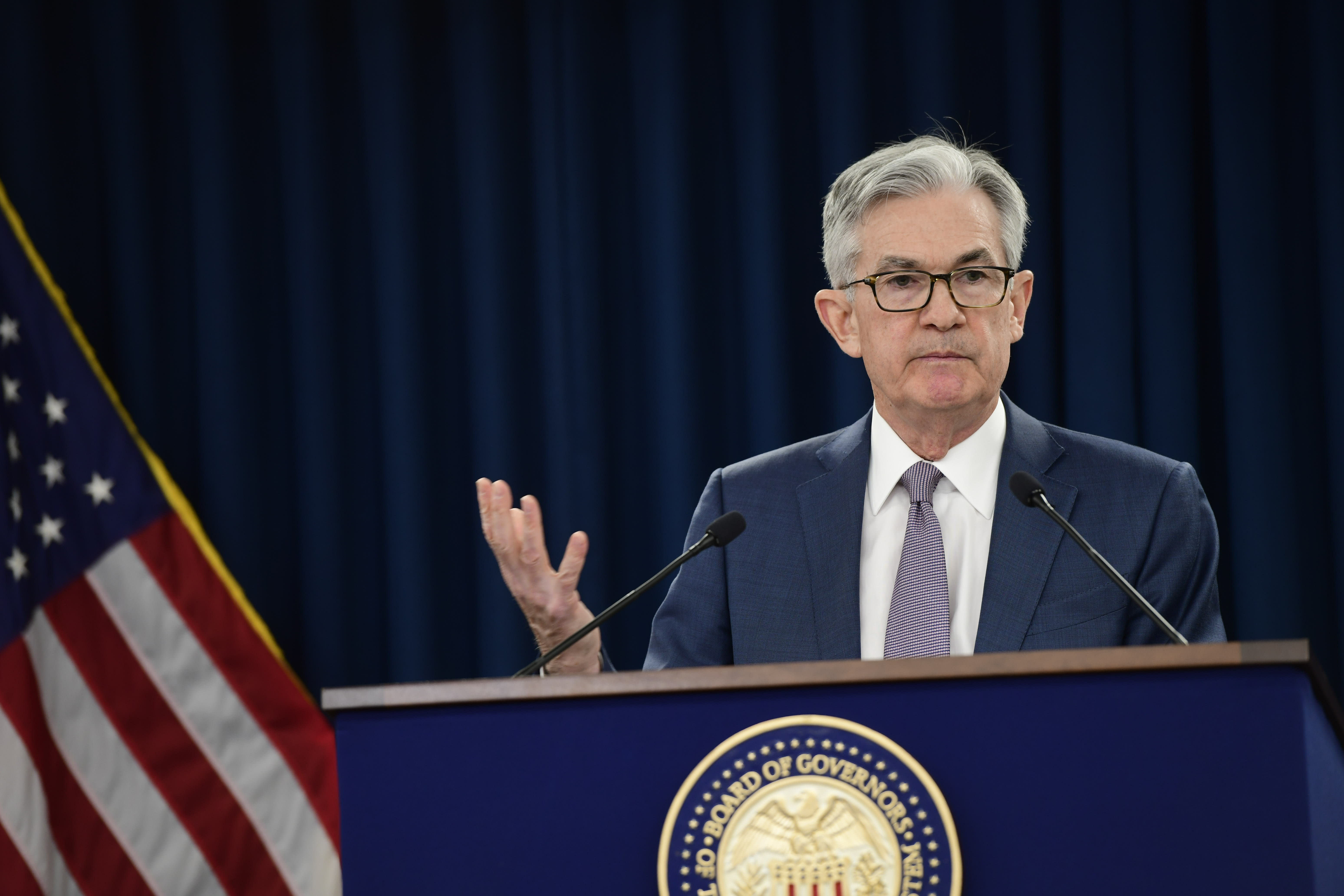EDITOR'S NOTE
So much of what's happening right now is a re-run of the 2008-09 crisis in the wrong way. We're in danger of playing out that old saw (apparently from Marx?) of history repeating itself as farce.
As I write this, Democrats have stalled the massive coronavirus stimulus bill ($2 trillion of total stimulus, or 10% of GDP, according to economist Larry Lindsey) that was expected to pass a vote in the Senate today--hence the sharp selloff in stocks once again. The market is desperate for quick action that will get cash and business assistance into this economy before it gets even worse.
People give me a hard time for tweeting out economists' estimates of second-quarter GDP--J.P. Morgan at -14%, Goldman at -24%, now Morgan Stanley at -30%--as scaremongering, or because the guesses are wildly imprecise, but this is exactly why we need those estimates! If there was ever a time not to hold up a massive stimulus bill, a complete plunge in GDP would seem like a pretty good time.
Sen. Schumer spoke to reporters after midnight last night, after Democrats refused to back the Senate bill which would have quickly advanced except that several Republican Senators are absent because they have, or fear they have, coronavirus, thus wiping out the GOP's majority. Schumer complained of "serious problems" with the bill, including "huge amounts of corporate bailout funds" without enough oversight, not enough money for hospitals and medical equipment, and no money for state and local governments that are about to go broke.
So if the money is for "corporations," it's a bailout, but if it's for municipalities, it's a lifeline. I don't buy it. All of this money being spent by the Federal Reserve and, hopefully soon, the federal government is, quite simply, a lifeline for the whole economy.
The actual "bailouts" of '08-09 were a completely different story. The economy was unsustainably growing previous to that because of a massive housing bubble. It was inevitably going to collapse, and cause a recession, because of how entrenched housing was in every corner of the economy. I remember showing up to a major bank as an intern in the summer of 2005 and learning that they invested the majority of their balance sheet in something called "mortgage-backed securities"--at the same time the housing bubble was reaching a climax. The big banks were also running upwards of thirty-to-one leverage on their balance sheets. They were a key cause of the imbalances that provoked the downturn and people were understandably upset that they had to be "bailed out" in order to prevent a complete collapse of the banking system and the economy*.
Fast forward and now I'm supposed to be upset that cruise lines, hotels, and airlines need financial help to avoid going belly up because of a pandemic that's going to plunge GDP by possibly 30%? Well, I'm not. Is anyone going to argue that this was an "airline-driven" expansion over the past decade? You can be upset that some of these companies (and not even all of them!) have high debt levels and did a lot of share buybacks, but they are not unique in that regard. And I can't get exercised that they weren't prepared for, again, a 30% plunge in GDP--which has never happened even in my 90-year-old grandfather's lifetime.
I just don't see this recession as the natural and necessary end of a business cycle. I just don't. I see it as a national catastrophe. If big corporations get money as a lifeline to stay in business, I applaud that. I won't call it a "bailout." It will keep them from laying off thousands of their own workers, not to mention those at other businesses that depend on their viability. Make it a forgivable loan contingent on maintaining the payroll for awhile, give the government equity so the taxpayer can participate in the giant rally the shares will inevitably have (and help pay for the cost of the lifeline), sure! Any such conditions will do.
This is not '08-09. Except that if the government keeps dithering on relief funds, they will force it to be. Not to mention if they don't support "big corporations" with relief funds, the Fed's about to do it anyhow by buying up corporate debt.
Unlike the Great Recession, this deepening downturn was--and may still be--largely avoidable.
See you at 1 p.m!
Kelly
*Not only are the banks not causing this crisis, they are helping to solve it by being a key lender to troubled businesses, offering their own employees bonuses and wage hikes, and likely soon distributing SBA (small business administration) stimulus funds.
KEY STORIES
IN CASE YOU MISSED IT
| ||||||||||||||||||||||||||||||||||||||||||||||||||||||||||||||||||||||||||||||||||||||||||||||||||||||||||||||||||||||||||||||||||||||||||||||||||||||||||||||||||||||||||||||||||||
Senin, 23 Maret 2020
Don't call it a bailout
Langganan:
Posting Komentar (Atom)







Tidak ada komentar:
Posting Komentar